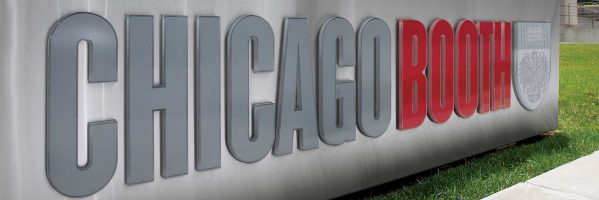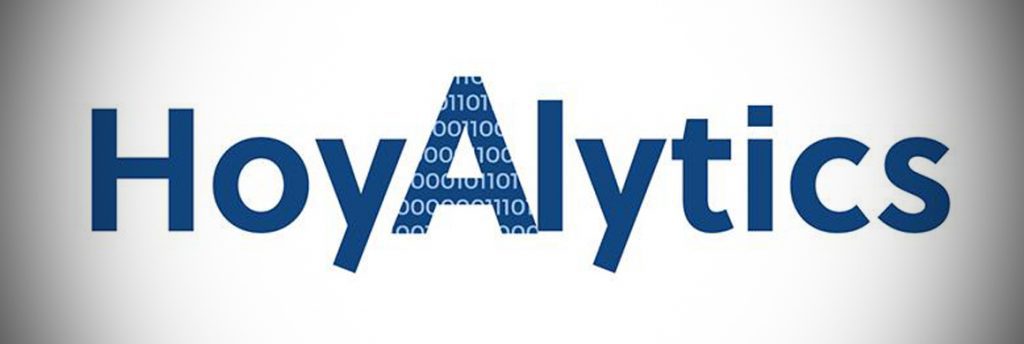Chicago Booth Professor Anil Kashyap Honored By Japanese Government

Last month, University of Chicago Booth School of Business professor Anil Kashyap received the Order of the Rising Sun, Gold Rays with Neck Ribbon award by the Japanese government. This prestigious award honors the renowned economist’s distinguished achievements and contributions to Japan.
Kashyap was honored for the significant role he played in promoting and disseminating high quality research on the Japanese financial system and economic policies. According to the school, he coordinated conferences bringing together Japanese and American researchers in partnership with the Economic and Social Research Institute, the think-tank under the Cabinet Office of Japan.
“It has been an honor and a privilege to work with the Cabinet office on these conferences. They have generated many good research papers, forged some collaborations and hopefully have helped with the policy process,” Kashyap said after receiving the award.
The Order of the Rising Sun was originally established in 1875 by Japanese Emperor Meiji as the first national decoration awarded by the Japanese government. However, a modern version has been awarded to non-Japanese recipients since 1981.
Today the award honors individuals who have made significant contributions to international relations, promotion of Japanese culture, advancements in their field, development in welfare, as well as preservation of the environment. Kashyap was among 149 foreign recipients of the award this year.

Anil Kashyap/Photo via Chicago Booth
Prior to joining the Chicago Booth faculty in 1991, Kashyap spent three years as an economist for the Board of Governors for the Federal Reserve System. In addition to his exploits in Japan, he is on the Board of Directors of the Bank of Italy’s Einuadi Institute of Economics and Finance, is a member of the Squam Lake Group, and serves on the International Monetary Fund’s Advisory Group on the development of a macro-prudential policy framework. Since 2016 he has been an external member of the Bank of England’s Financial Policy Committee.
Kashyap is currently the Edward Eagle Brown Professor of Economics and Finance at Chicago Booth. His research has won him numerous other awards, including a Sloan Research Fellowship, the Nikkei Prize for Excellent Books in Economic Sciences, and a Senior Houblon-Norman Fellowship from the Bank of England.
Kashyap also currently works as a consultant for the Federal Reserve Bank of Chicago, and serves as a member of the Economic Advisory Panel of the Federal Reserve Bank of New York, and as a Research Associate for the National Bureau of Economic Research.
UC Irvine FEMBA Students Visit Spain as Part of International Residency

A group of 30 Fully-Employed MBA (FEMBA) students from the Paul Merage School of Business recently traveled to Spain for their International Residential. The group, led by Professors Connie Pechmann and William Hernandez, toured the Spanish cities of Madrid, Santander, and Bilbao, visited with a number of different companies, and experienced an authentic cultural experience. Some of the trip’s highlights included visits to the corporate headquarters of Banco Santander and SENER.
Located in Santander, Banco Santander originated in the Spanish city but has since expanded to operate in Europe, Latin America, North America, and Asia.
“I was extremely impressed with the [Banco Santander] speaker’s knowledge and business prowess,” said Christopher Adams, ’18. “After this experience, most of the students are craving a west coast expansion by the bank and some way to work for this organization. What an unbelievable and exclusive experience.”
In Bilbao, the group visited Grupo SENER, which is a global engineering and construction company. “Their innovative value proposition of differentiation at higher value was clear,” said Bita Hosseini, ’18. “But, what was shocking to me was their ability to facilitate cross-functional collaboration with both public and private experts as they transformed more into a manufacturing strategy rather than a services strategy, similar to GE. Learning about various solar panel plants and the mix of science and business was eye opening.”
The MBAs also spent time studying at the University of Cantabria where they learned how business was conducted in Spain. The students participated in lectures that covered topics such as economics, law, sustainability strategies, and corporate governance.
All FEMBA students have the opportunity to participate in an International Residential. This one-week residential is a rare, firsthand opportunity to learn about the socio-economic, cultural, and political issues faced by businesses outside the United States. Other recent trips have been to major cities in China, and have focused on how the country became a dominant political and economic force throughout Asia. You can learn more about the FEMBA program here.
Hiring Practices Examined in New UMD Smith Research

Did you know that about half of job openings go to friends and acquaintances of high-powered individuals within an organization? We’ve always been told it’s about who you know, not what you know, after all.
Yes, referral-based hiring come across as a little sketchy, but many human resource departments actually encourage the strategy. But despite that, a research paper co-written by two Robert H. Smith School of Business scholars shows that hiring managers invite harsh moral judgments when they give jobs to friends and acquaintances referred to them.
Entitled “Compromised Ethics in Hiring Processes? How Referrers’ Power Affects Employees’ Reactions to Referral Practices,” the author’s note; “When the referrer is powerful, observers will believe the hiring manager is attempting to increase the referrer’s dependence on him/her, ultimately resulting in future benefits for the hiring manager.”
The research was authored by UMD Smith professor Rellie Derfler-Rozin, Ph.D. candidate Bradford Baker, and Harvard Business School professor Francesca Gino and published in the Academy of Management Journal. They found that hiring managers appear self-serving and unethical to others in the organization, which can disrupt workplace chemistry and even hurt support for the new hire.
“Referral practices can be seen as morally murky territory in which special interests and the exchange of favors dominate, above and beyond merit,” the authors wrote.
However, they also found that referral-based hiring practices have advantages: Not only do referrers usually have inside information about the applicants they recommend, but they also have incentives to train, mentor, and monitor them as well. Additionally, new hires want to perform well so they don’t embarrass the referrers who put trust in them.
Ultimately, the research does not suggest that companies should stop referral-based hiring, but that hiring managers and the people who give referrals should be mindful of the power dynamics involved.
“One suggestion could be creating a system in which referrers are anonymous, at least for an initial period of time pre and post-hire, while simultaneously providing enhanced transparency regarding the reasons for the referral,” the authors write.
You can read the entire research paper “Compromised Ethics in Hiring Processes? How Referrers’ Power Affects Employees’ Reactions to Referral Practices” here.
Tuition Cost vs. Starting Salary: Atlanta

One of the most important things a prospective MBA can look for when choosing a business school is the program’s return on investment. Return on investment, or ROI, is the most common profitability ratio, and an easy way to determine if an MBA is “worth” your time and money.
According to a recent review of 129 schools from U.S. News & World Report, graduates from a third of the institutions earned an average starting salary and bonus of more than $100,000, with the overall average for all schools coming in at $91,940. MBA Class of 2015 graduates typically left school with just over $50,054 in debt, according to the same data.
Most business schools publish employment records with average salaries for different industries, so prospective MBA students can use these numbers to project future salaries. Lucky for you, we’ve compiled these figures some of the Atlanta metro‘s premiere business schools.
The Atlanta MBA Return on Investment
Clark Atlanta University School of Business
A full-time MBA at the Clark Atlanta School of Business requires 60 credit hours of study, which totals up to $53,220 in tuition. Other costs also apply, including $1,008 in annual fees as well as books and supplies. To save some money for sibling students, Clark offers a Sibling Discount to a biological or legally adopted sibling currently enrolled at Clark Atlanta University. Siblings will receive a 33.3 percent discount after submitting a copy of both birth certificates, parent’s federal tax return and a simple application.
According to employment statistics provided by the school, MBA graduates earn an average base salary of $79,000 with a signing bonus of $12,250. Most graduates took marketing/sales jobs (59.7 percent), with finance/accounting (29.7 percent), human resources (7.4 percent), and operations (7.4 percent) following behind. In order to help place MBAs, the Atlanta University Center Consortium Career Planning and Placement Service (AUCC CPPS) offers students career planning and placement resources, plans on-campus recruiting events and hosts a database of contact information for over 1400 corporate, government and educational partners. They also host several on-campus recruiting sessions and career fairs.
Eugene W. Stetson School of Business & Economics – Mercer University
Full-time MBAs at Mercer’s Eugene W. Stetson School of Business & Economics pay $818 per credit hour, with total tuition for the program coming to $29,448 with some additional minimal costs, such as a technology fee. Students can visit the university’s Office of Student Financial Planning to receive updated financial assistance information, including information on federal student loan programs.
According to U.S. News, Mercer MBAs earn an average base salary of $57,500, with 23.8 percent of full-time graduates employed at the time of graduation. Mercer students can visit the Office of Career Management Services on the Macon or Atlanta Campus to receive specialized career guidance, job search, internship search, résumé and cover letter assistance, developing personal brand information, interviewing information, and salary negotiating.
Goizueta Business School – Emory University
Students enrolled in Emory University’s Goizueta Business School two-year, full-time MBA program pay a base tuition of $59,000 per year, while those enrolled in the one-year program pay about $89,500. These cost account for tuition only, so students must consider additional expenses for textbooks and other fees. To offset some of these costs, financial assistance is available in the form of Federal Stafford Loans, graduate plus loans, private loans, international student loans, research and assistantships, merit-based scholarships, fellowships from the Goizueta Business Fund for Excellence and fellowships at various constituent centers.
According to Goizueta’s most recent MBA employment report, the school’s alumni are among the top for post-graduate employment nationwide, with nearly 95 percent of students receiving job offers within three months after graduating and an average full-time base salary of $113,295. Goizueta Business School’s Career Management Center (CMC) offers assistance to full-time MBAs in their job search. Students can receive professional development and interview training within both core and elective courses, preparing students for both the internship and job search processes. Most Emory MBAs were offered post-graduate employment following an internship (56 percent), with another 19 percent getting job offers thanks to School Scheduled Interviews.
YOU MAY ALSO LIKE: How To Avoid Costly MBA Résumé Mistakes
Scheller College of Business – Georgia Institute of Technology
Tuition costs for Georgia Tech Scheller College of Business full-time MBA students are about $29,232 a year for Georgia residents or $40,180 a year for out-of-state residents, as well as $2,010 in mandatory fees. Financial assistance is available in the form of federal loans, graduate assistantships, and a limited number of fellowships.
According to the school’s MBA Compensation Overview, 95 percent of Scheller MBAs are employed within three months of graduation. These students are paid an average starting salary of $108,088. Meanwhile, 90 percent of graduates earn a signing bonus, which average to the amount of $15,830. Scheller MBA students are guided along the path to employment at the Jones MBA Career Center, where they learn about opportunities for internships and employment through one-on-one advisement, an eight-week career development workshop, self-assessment tools, interview preparation, and a series of conferences and career fairs
Terry College of Business – University of Georgia
Terrt’s in-state students pay about $15,670 in annual tuition, including student fees, for the Terry College of Business‘ full-time MBA. Non-residents pay $34,378 per year, including student fees. The school also awards approximately one-third of its students with graduate assistantships to help make the program even more affordable. Some students may have their tuition drastically reduced per semester, get 40 percent of their student health insurance premiums paid by UGS, and receive a monthly stipend for working 13 hours per week in the Terry College of Business. Additional scholarships are also available, such as the Terry MBA Leadership Scholarship. Given out during the spring semester, the scholarship awards between $1,000 to $2,000 to a student who has shown promising leadership skills.
According to the school’s MBA Employment Statistics, 90 percent of University of Georgia full-time MBA students receive a job offer within three months of graduating with an averaging starting salary near $90,250. Terry helps its students gain employment at the MBA Career Management Center (CMC), which helps students and graduates connect with networking events, information sessions, interviews, and much more.
Georgetown McDonough MBAs Launch HoyAnalytics Club

A group of Evening MBA students at the Georgetown University McDonough School of Business recently launched HoyAnalytics—a student organization focusing on statistics and data analytics. Though the club is is pending official sponsorship by the MBA Program Office, it has drawn a lot of interest in the McDonough School of Business.
According to the McDonough School, HoyAlytics is the first club organized by Evening MBA students. The organization’s board is made up of both full-time and Evening program students, and was created with unifying the two MBA programs in mind.
But the organization’s two main objectives are to create a community for those interested in statistics and analytics, as well as help those who are not already data-savvy gain quantitative skills. As statistics and analytics have become prevalent in more and more industries, HoyAlytics hopes to prepare MBAs for their careers.
“The club is on the cutting edge,” said Kenny Tan (MBA’19), one of the HoyAlytics founders. “Students are taking it in their own hands to make things happen.”

According to McDonough, the club recently held a free Excel workshop with nearly 40 full-time and Evening MBA students in attendance, and plans to continue holding workshops to teach different skills and software, such as Tableau, SAS, R, and SQL, as well as inviting guest speakers.
Student organizations and clubs generally provide great networking and professional benefits, such as access to industry leaders, professional development opportunities and the ability to make a real impact. A U.S. News & World Report list describes the following as reasons why it’s a good decision to get involved in a club in college:
- It allows students to become connected to their school
- It helps them build community
- It allows them to discover their passions and strengths
- It’s a résumé builder
- Sometimes, busier people do better
- Utilize your school’s resources
Check out some of the coolest MBA clubs and student organization’s in the Washington DC Metro here.
Tech Grads Surge in New Northwestern Kellogg Employment Report

The Kellogg School of Management released new employment data and statistics from the Class of 2017. According to the school, 94 percent of Kellogg’s full-time MBA Class of 2017 received an offer within three months of graduation.
“Kellogg leaders take a multidisciplinary approach to solving complex business challenges,” said Matt Merrick, Associate Dean of MBA Operations. “The versatile skills they hone at Kellogg enable them to make an immediate impact across all types of organizations.”
MBAs were hired by a wide variety of companies across all disciplines and industries, shapes and sizes. Some of the top companies hiring Kellogg students include McKinsey & Company, The Boston Consulting Group, Amazon, Bain & Company, and Microsoft.
Employment data shows that the most popular industries were consulting (33 percent), technology (25 percent), finance (13 percent) and CPG (12 percent). The Kellogg Career Management Center helped students establish relationships with more than 50 technology companies in order to help secure these employment opportunities. Overall, the Career Management Center works with employers to create custom recruiting strategies, forging deep relationships with employers of all sizes, from all industries and regions.
According to our sister site Clear Admit, the 25 percent of Kellogg grads that landed jobs in the technology industry was a school record.
Jeanette Brown writes:
“Amazon hired 32 Kellogg grads, making it the third largest recruiter in 2017, behind only McKinsey and Boston Consulting Group (BCG). But Amazon was far from the only tech firm to hire at the school. ‘It’s not only the big employers like Amazon, Apple, Google—but the small companies as well, the ones that hire just one to two MBAs,’ explains Liza Kirkpatrick, Senior Director of the full-time MBA program at Kellogg’s Career Management Center. ‘We had over 50 unique tech employers that hired our students this past year, which demonstrates that we really have that depth.’ Kirkpatrick further noted that the types of jobs for which tech firms are hiring Kellogg grads is widely varied, including product management, sales, marketing, business operations, supply chain, product development, and others.”
Kirkpatrick notes that the surge in tech jobs stems from a concerted effort from the business school, which was also reflected in the number of technology industry internships for the Class of 2018.
“‘We started developing relationships in the tech space many years ago,’ acknowledges Kirkpatrick. ‘It has taken a while for firms to recognize that when an MBA comes on board, it really adds value.’ But they certainly have, which can also be seen reflected in the number of tech firms that now take on summer interns. ‘They have really organized themselves to bring on an MBA class as interns as a result,’ Kirkpatrick adds. The most recent employment report reveals that 26 percent of the Class of 2018 interned at technology firms.”
In a press release from the school, Jodi Washington, a Program Manager for the Networking and Security Transformation team, said, “Kellogg’s curriculum builds leaders who are strong analytical thinkers and are confident collaborating across organizations. The Kellogg graduates we hire jump in on day one, but also continue to mature at Cisco.”

2017 statistics/photo courtesy of Northwestern Kellogg.
The statistics show that the number of Kellogg MBAs to accept job offers on the West Coast has also increased (31.4 percent) from last year, a direct correlation to uptick in tech hires. Meanwhile, 30 percent of 2017 MBAs stayed in the Midwest and 33 percent accepted jobs on the East Coast.
You can read more on Kellogg’s latest employment stats and the Clear Admit interview with Kellogg Senior Director of Career Management Liza Kirkpatrick here.
